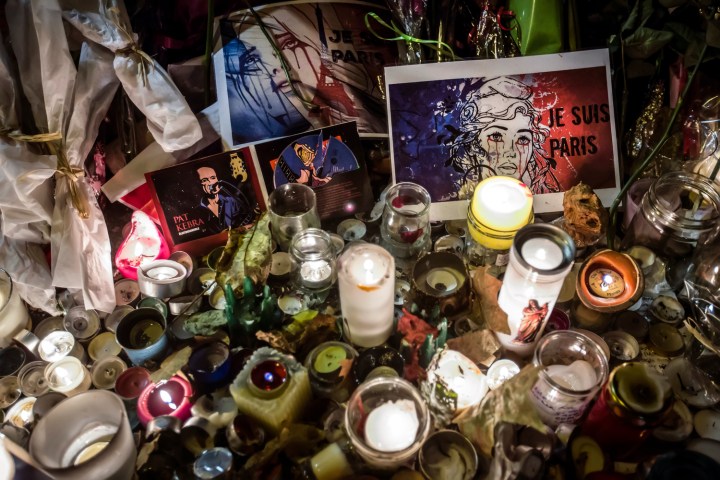
A 20-year veteran of United Press International (UPI), Vidon-White is being sued by the family of a fatally-wounded victim of the attacks, for causing them emotional damage by capturing and subsequently submitting the image to her news organization.
The image in question is that of a man identified as 30-year-old Cédric G, who is pictured lying on the ground outside the Bataclan music venue, with a fatal gunshot wound to the head. Reports show the man was attended to by paramedics, but succumbed to his injuries.
Once in the hands of UPI, according to BuzzFeed News, the image was sold to a French photo agency, from where it was purchased by VSD, a magazine that published the image on November 17, 2015. (You can see an obscured version of the photo at BuzzFeed.)
Not long after the image was published, the victim’s family criticized both the photographer and the magazine for capturing and publishing the photo without any attempt to censor his identity.
Two months after the image was published, both Vidon-White and VSD received a letter notifying them of a lawsuit. Citing France’s “Guigou Law,” which prohibits photos from being published that violate victims’ “human dignity,” the family of the victim is demanding $38,000 in damages and $11,000 in legal fees.
Press organizations have backed Vidon-White, with Associated Reporters Abroad (ARA) stating, “We believe that Vidon-White has broken no laws […] She took a photo of a victim of the attack; she did not publish the photo in France; she did not sell the photo to a French outlet – she sold it as part of a series to UPI at which point had no control over its resale or its publication.”
Vidot-White’s lawyer, Vincent Tolédano, is attempting to get the case dismissed by the judge due to the law only applying to victims who are still living, not deceased. Furthermore, Tolédano referenced a document presented to the Judicial Ministry wherein he notes that the law specifies that a photo of a deceased victim in and of itself is not “degrading,” a very specific detail mentioned in the law.
Tolédano summarizes his thoughts on the matter in an email stating, “We must therefore not confuse, in the horror of an event, the pain of the victims, who command the utmost respect, and the work of journalists.”
The parties involved went to court last month, and a judge will rule on May 20 whether or not the case will proceed. If the judge rules in favor of Vidon-White and VSD, it is believed the family will push for the “Guigou Law” to include deceased victims.



